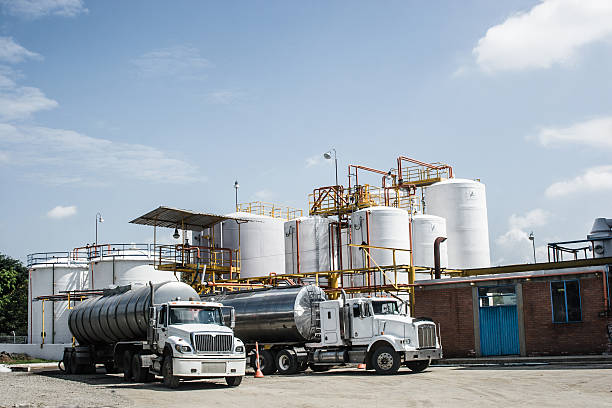Navigating Challenges in the Propane Industry: Strategies for Marketers

The propane industry plays a vital role in providing energy solutions to residential, commercial, and industrial consumers. However, like any industry, propane marketers encounter their fair share of challenges that can hinder smooth operations and growth. Here are some of the prominent issues propane companies face and the effective strategies to resolve them:
1. Supply Chain Uncertainties
One of the recurring challenges in the propane industry is the volatility of the supply chain. Factors such as weather conditions, geopolitical events, and production disruptions can impact propane availability and prices. To address this issue, propane marketers can employ several strategies:
• Expand Your Supplier Pool: It can be dangerous to rely solely on one supplier. Establish relationships with multiple suppliers to ensure a steady propane supply even during disruptions.
• Invest in Storage Facilities: Investing in efficient storage facilities can provide a buffer during supply shortages. This enables marketers to purchase propane when prices are favorable and distribute it when demand rises.
2. Regulatory Compliance
Propane is a highly regulated fuel due to safety concerns. Staying compliant with federal, state, and local regulations can be challenging, but it’s crucial in order to ensure the safety of both employees and consumers. Here’s how to tackle regulatory compliance:
• Stay Informed: Keep abreast of changes in regulations. Regularly review safety protocols, labeling requirements, and transportation regulations to avoid violations.
• Prioritize Training and Education: Conduct comprehensive training for employees to ensure they are well-versed in safety procedures and regulatory requirements.
3. Fluctuating Demand
Propane demand can vary significantly depending on the season and economic conditions. Cold winters often lead to spikes in demand for heating, while economic downturns can affect industrial consumption. To manage fluctuating demand:
• Diversify Market Segments: Expand your customer base across residential, commercial, and industrial sectors. Revenue streams may become more stable as a result of this diversity.
• Offer Flexible Contracts: Provide flexible pricing and contract options to accommodate varying demand patterns.
4. Competition and Marketing
Competition within the propane industry can be fierce. Effective marketing strategies are essential to stand out in the market and attract new customers. Here’s how propane companies can address this challenge:
• Value Proposition: Clearly express the special benefit that your company provides. Highlight what sets you apart, whether it’s exceptional customer service, reliability, or innovative solutions.
• Online Presence: Create a credible online identity by operating active social media accounts and maintaining a business-like website. This not only helps in attracting new customers but also in building credibility.
5. Environmental Concerns
As environmental awareness grows, consumers are increasingly looking for cleaner and more sustainable energy options. Propane, while relatively cleaner than many other fossil fuels, still faces scrutiny due to its carbon emissions. Addressing environmental concerns can be achieved through the following:
• Promote Efficiency: Emphasize the efficiency of propane-powered equipment, which often emits fewer pollutants and greenhouse gases compared to traditional alternatives.
• Explore Renewable Propane: Stay updated on advancements in renewable propane, a more sustainable alternative. Embracing such innovations can position your company as environmentally conscious.
6. Technological Advancements
The propane industry is not immune to technological disruptions. As technology evolves, businesses must adapt to remain competitive and efficient. Here’s how to navigate technological changes:
• Automation: Embrace automation in operations such as order processing, delivery scheduling, and inventory management to improve efficiency and reduce errors.
• Data Analytics: Utilize data analytics to gain insights into customer preferences, consumption patterns, and market trends, allowing you to make informed decisions.
7. Customer Retention and Satisfaction
The importance of retaining existing consumers cannot be overstated. Unsatisfactory experiences can lead to customer churn. To enhance customer satisfaction, be sure to prioritize these things:
• Responsive Customer Support: Provide prompt and effective customer support to address inquiries, concerns, and emergencies.
• Regular Communication: Keep customers informed about pricing changes, supply updates, and industry news. Establishing open lines of communication fosters trust.













